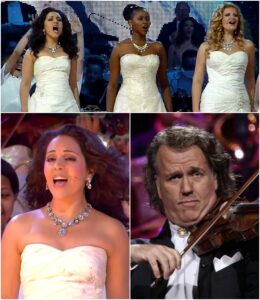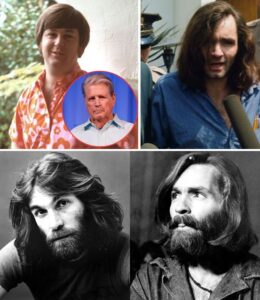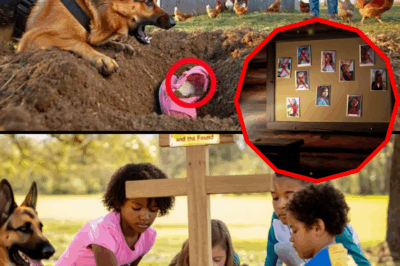Garth Brooks surprised fans during his Oregon concert by bringing out an 800-person choir, creating an unforgettable moment that left the crowd buzzing. The collaboration added an extraordinary dimension to his performance, making it one for the history books. Fans were left in awe, eager to know what else Garth has in store for his tour.
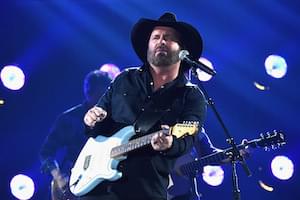
A Night to Remember: Garth Brooks and the 800-Person Choir in Oregon’s Autzen Stadium
Some musical moments live on forever, etched into collective memory, transcending the boundaries of a regular performance and entering the realm of the truly legendary. The night of June 29, 2024, in Eugene, Oregon, will surely go down in history as one such moment, when Garth Brooks—already a titan of country music—teamed up with an 800-person choir for an unforgettable spectacle at Autzen Stadium.
For decades, Garth Brooks has filled venues with his powerful voice, heartfelt lyrics, and infectious energy, captivating fans around the world with both his classic hits and his lively stage presence. Yet, even for an artist of his caliber, what happened in Eugene was exceptional—a celebration of community, unity, and the sheer, transformative power of music.
Laying the Foundations: The Lead-Up to a Spectacle

Even before the first note rang out, anticipation for Brooks’ concert at Autzen Stadium was palpable. The historic venue, home to the University of Oregon Ducks, is iconic in its own right—its stands have been witness to countless nail-biting football games, roaring crowds, and celebratory nights. Little did the audience know that the 2024 concert would eclipse all previous spectacles, breaking attendance records and gifting fans an utterly unique experience.
The stage was set for greatness, and Garth Brooks’ team had something truly special planned.
A Moment in Time: “We Shall Be Free” with a Choir of 800
Midway through a setlist packed with Brooks’ most beloved hits, the concert took an unexpected, awe-inspiring turn as he launched into “We Shall Be Free.” The song, first released in 1992, is not just a crowd-pleaser—its lyrics ring with hope, resilience, and the dream of a better world, themes that seem ever more relevant today.
As Brooks’ voice soared across the stadium, something extraordinary unfolded. From all corners of the vast arena, an 800-person choir began to emerge. Carefully coordinated and beautifully attired, the choir members made their way to join Brooks, their voices gradually weaving into the song’s stirring chorus.
For the audience, the effect was immediate—a tidal wave of sound and emotion. As the choir joined in, the harmonies soared, transforming the performance into a communal celebration of hope and freedom. Attendees described goosebumps, tears, and a palpable sense of togetherness sweeping over the crowd of more than 54,000. The sheer scale of the choir, the anthem’s message, and Brooks’ passionate delivery combined to create a once-in-a-lifetime musical moment.
A Nod to Local Tradition: “Shout” and the Oregon Spirit
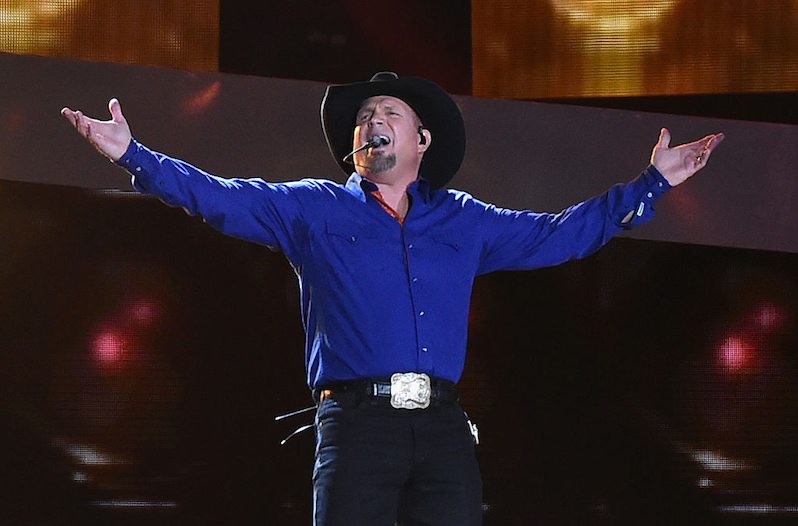
Just as the audience caught its breath, the performance segued seamlessly into The Isley Brothers’ “Shout.” At first glance, the switch might seem surprising; however, the classic tune is a cherished tradition at University of Oregon football games, played in every home game to rally the crowd and boost team spirit.
Brooks’ decision to include “Shout”—with the full force of the 800-person choir behind him—was a heartfelt tribute to local culture. The stadium erupted in joyous chaos as fans jumped, danced, and sang along. Even those unfamiliar with the Ducks’ rituals could not resist joining in the fun. The performance perfectly fused country roots with Oregon pride, blending the universal with the hyperlocal, all under the open Oregon sky.
Breaking Records and Boundaries
Numbers tell part of the story. Autzen Stadium, which typically seats 54,000, saw every seat filled, setting a new attendance record. But more than numbers, it was the atmosphere that made the night historic—a sense of unity, uplift, and pure musical joy that transcended mere entertainment.
Brooks, who has always valued connection with his audience, later went live on his Facebook page to share exclusive footage from the concert. In the video, fans around the world could see and feel the electricity of the night. The comments poured in: messages of thanks, awe, and gratitude for the unforgettable experience.
The Meaning Behind the Magic
Why do concerts like this matter? In a world that sometimes feels divided or uncertain, music retains its unique power to bring people together. “We Shall Be Free” is an anthem for all times, embracing love and liberation, while “Shout” taps into irrepressible joy. By merging these songs, Brooks and his 800-strong choir achieved more than technical mastery—they created a space where every listener felt part of something grander and more hopeful.
Choirs, in particular, symbolize community: voices blending, individuals uniting for a shared purpose. On that night, the choir was more than backup; it was the heart and soul of the performance. Their presence underscored the power of togetherness, both onstage and off.
Aftermath and Legacy
As the lights faded and fans streamed out of Autzen Stadium, the memory lingered: the wall of sound, the rush of emotion, the sense of having lived through a moment for the ages. For Brooks, it was a crowning achievement in a career already filled with high points. For fans, it was a reminder of why live music matters—how it can uplift, inspire, and unite.
Long after the last note of “Shout” died away, social media buzzed with videos, photos, and recollections of the night. For the 800 choir members, singing beside Garth Brooks was a dream come true. For Oregon, the performance became a new piece of musical folklore, sure to be retold for years to come.
In the end, the Eugene concert was about more than breaking records. It was a testament to the enduring power of music, community, and the magic that can happen when the two come together. As Garth Brooks and his choir proved, sometimes, we all just need to raise our voices together—and shout.
News
A Single Bark That Changed Everything: The Incredible True Story of a German Shepherd Who Unmasked a Hometown Serial Predator, Plunged a Quiet County into Nightmares, and Proved Some Heroes Will Risk It All to Protect the Innocent—Even When Evil Stares Back from the Darkness.
The Untold Story: How One Dog’s Loyalty Unmasked A Predator and Changed a Town Forever If not for Rocky’s bark…
Exposing the Unthinkable: K9 Hero Dog Uncovers Deadly Secret Agent Masquerading as Top Police Officer, Thrusting Entire Department into Heart-Stopping Conspiracy That Could Destroy Lives! Could Your Colleagues Be Impostors Too? Find Out What Shadow the Dog Saw That No Human Could Detect Before It Was Too Late!
K9 Hero Dog Detects Impostor in the Police Department — A Thrilling True Tale of Loyalty, Betrayal, and Instinct The…
A Missing Navy SEAL K9 Guarded a Mysterious Truck for Hours—When Commanders Forced Open the Door, What They Found Shattered Military Protocol and Exposed a Shocking Conspiracy That Had Haunted the Base for 18 Months, Sending Shockwaves Through the Special Operations Community and Changing History Forever.
K9 Dog Refused to Let the Navy SEAL Open His Truck Door—What Was Inside Made the Commander Step Back There…
Funeral Mayhem as German Shepherd Attacks Police Chief’s Casket—Dog Uncovers Shocking Secret, Forces Authorities to Exhume Coffin, Revealing Chief Still Breathing After Alleged Death, Setting Off Frenzied Hunt for a Would-Be Killer Among Trusted Colleagues, and Exposing an Explosive Scandal Shaking Local Government!
Article: The Dog That Wouldn’t Stop Barking – How Max Saved Chief Harrison, Unmasked a Conspiracy, and Shocked a Town…
Heroic War Dog Defies Police Orders and Recognizes His True Master After Thirty Years—Triggering a Midnight Siege, a Government Cover-Up, and a Fight to Protect a Bond Written in Blood and Battle!
A K9 Dog Was Ordered to Attack an Old Man — But What Happened Next Left Everyone in Tears! On…
A Bloodied K9 Staggers to Police in the Storm, Dragging a Backpack—When Officers Opened It, the Heart-Stopping Secret Inside Sparked a Shocking Town-Wide Mystery That Would Shake Communities, Expose Terrible Secrets, and Change the Lives of a Lost Child, a Fallen Hero, and an Entire Town Forever.
Wounded K9 Drags Backpack to Police — The Miracle and the Mystery That Changed Everything Thunder cracked over Cedar Grove…
End of content
No more pages to load




